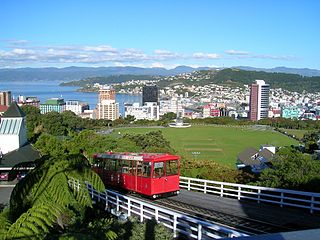 Time to be the Natural Capital
Time to be the Natural Capital
In an election bemoaned for a lack of issues and poor turnout, one strong message has been sent to the Town Hall in Wellington: we want to make Wellington the Natural Capital.
Conservation is now a mainstream issue rather than a place for fringey socialists and naturalists who wouldn’t have a clue where a dollar comes from. Wellingtonians have realised that to rejuvenate ourselves and differentiate successfully from the Auckland juggernaut we have to not only improve our economy but also make the most of our natural assets – the stuff that sets us apart from that factory town further north. As Sir Paul Callaghan said “we have to be the place where talent wants to live”.
And what are those assets? We have a relatively compact city centre, with its vibrant café culture, completely surrounded by nature. And in some pockets of that nature, including many of our parks, hard-working volunteers and Council staff have brought back the native wildlife. All we have to do is join up the dots by making a little effort in our own back yards. A few simple steps like trapping predators and planting the stuff our native species like to eat is all we need. This is the vision of Enhancing the Halo, and it can be achieved.
Contrast this with Auckland, which is rapidly losing its trees, and has no real bird life apart from in the Hauraki Gulf and in the distant Waitakere ranges, and has a stray cat colony in the Parnell Gardens!. Wellington is the only city in the world where you can see a kaka in the city centre. We will never compete with them on beaches, or sailing. But for city dwelling nature lovers, Wellington is the place to be.
It has been twenty years since the Absolutely Positively campaign, and Wellington has done little since then to promote our advantages, although we have watched other cities copy our vibrant events and cultural calendar. We have lost our edge. “Coolest Little Capital” is not a strategy, it’s a slogan. We need to do better than that – declaring ourselves the Natural Capital and backing the claim with action, is our chance to get moving again.
The Enhancing the Halo project has only been running a few months, and already we have over 700 households making their backyards into safe havens for native wildlife. Perhaps the most encouraging sign is that we have over 115 households trapping in their backyards, killing the rats, mice, stoats and hedgehogs that kill our native birds and munch their eggs. Incredibly, we only need 1,500 households trapping for predators to make Wellington a predator-free city.
The citizens along the border of Alberta Canada trap rats in their houses and backyards, forming an effective trap line that keeps Norway rats out of the state. The area south of State Highway One could form a similar trap line in Wellington, beneath which we could clear all predators. The success Wellington’s Regional Council has had clearing possums (using the airport as a natural barrier) from the Miramar peninsula is another fantastic example. It can be done! There is no reason why the whole capital couldn’t have as many birds as Otari-Wilton or Zealandia.
And then there’s the cats. In urban areas it’s wandering domestic cats that are the biggest killers. We need to keep our moggies contained, that is the challenge for cat owners. We’re running some cameras around urban Wellington right now just to demonstrate the problem we have with wandering cats. Your will be shocked by the results – just how many cats wander across your property overnight, defecating and killing wildlife. And we let our kiddies play in these back yards? So long as we’re complacent or too chicken to fix the disgrace of wandering cats then making ours the natural capital will be beyond us. You cannot have native birds cohabiting with wandering cats, that’s mission impossible. Much as we love our cats, we need to contain them, this is our challenge.
The Council is taking some tentative steps in Karori to improve the chances of birds that come and go from Zealandia. While this is perfectly reasonable as an experiment to work out how best to achieve our goal it is time to set out some big goals for Wellington. Being the first city in the world to be predator-free would be a bold declaration, and would create an incredible point of difference. If we’re serious let’s get into it.

